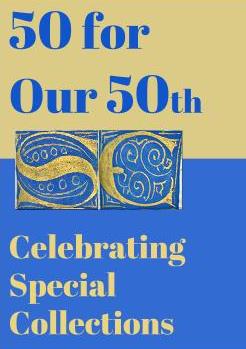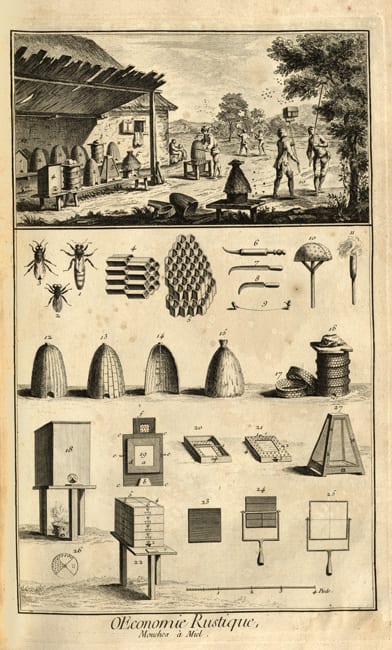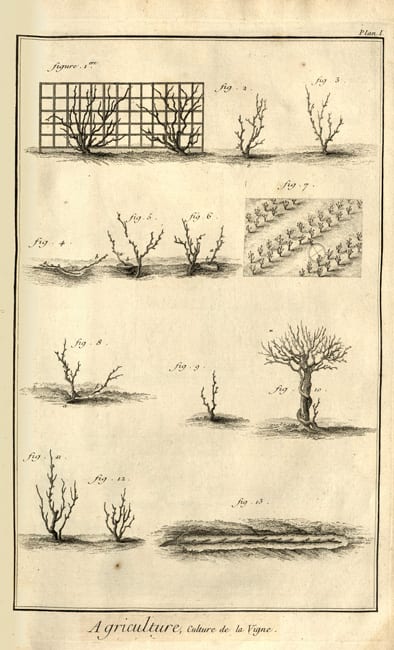Denis Diderot’s Encyclopédie, Planches, vol. VI
50 Features of Special Collections: Encyclopedist Denis Diderot

For the final five features celebrating Special Collections’ 50th Anniversary, we focus on a massive body of work that has come to represent the ideals of the Enlightenment and has been said to have inspired the French Revolution: Encyclopédie, ou Dictionnaire raisonné des sciences, des arts et des métiers or Encyclopedia, or an Analytical Dictionary of the Sciences, Arts and Trades. With help from mathematician Jean d’Alembert, fellow philosophers Jean-Jacques Rousseau and Voltaire, medical scientist Louis de Jaucourt, and contributions from many more, Denis Diderot spent 25 years – often under the threat of religious and royal persecution – editing the Encyclopédie from 1747 to 1772.


Encyclopédie initially started as a project to translate Ephraim Chambers’ Cyclopaedia, a two-volume work published in London in 1728, into French. When the last volumes were eventually completed in 1772, Encyclopédie had turned into the “most massive single reference work in Europe” consisting of 17 folio volumes that featured 71,818 articles, 11 folio volumes of 2,885 plates, and five folio volumes of supplemental material. Even after co-editor d’Alembert left the project in 1757, Diderot continued to edit Encyclopédie by himself. More than 150 people, or Encyclopedists as they came to be known, contributed articles to Encyclopédie with Louis de Jaucourt believed to have written more than 17,500 articles – about 27 percent of the total amount.

In Encyclopédie, Diderot sought to gather and record information on all branches of science, the liberal and mechanical arts of eighteenth century Europe. More importantly, Diderot endeavored to ‘change the general way of thinking’ by questioning the established authority of the Catholic Church and the Crown. Diderot and the other Encyclopedists were critical of absolute monarchy and Christian doctrine, arguing that individuals assign authority to a sovereign body rather than to an individual, and that judgement and inquiry be based on the “sensing, material body, understood through the philosophical lens of empiricism, sensationalism and materialism” rather than on “transcendental principles of religion or idealist metaphysics.” Contributors of Encyclopédie were atheists, social and economic reformers who constantly lived under the fear of arrest, imprisonment in the Bastille, or attacks and scorn as well as exile. At one point, Encyclopédie was placed on the church’s list of banned books by Pope Clement XIII. In order to overcome issues of censorship, Diderot created a system of cross-references that led readers to draw ironic and subversive comparisons between articles.

Uncaptioned images are from Denis Diderot’s Encyclopédie, Planches, vol. 1
Works cited:
Blom, Philipp. Enlightening the World: Encyclopédie, The Book That Changed the Course of History. New York: Palgrave Macmillan, 2005.
Fowler, James. New Essays on Diderot. Cambridge: Cambridge University Press, 2011.